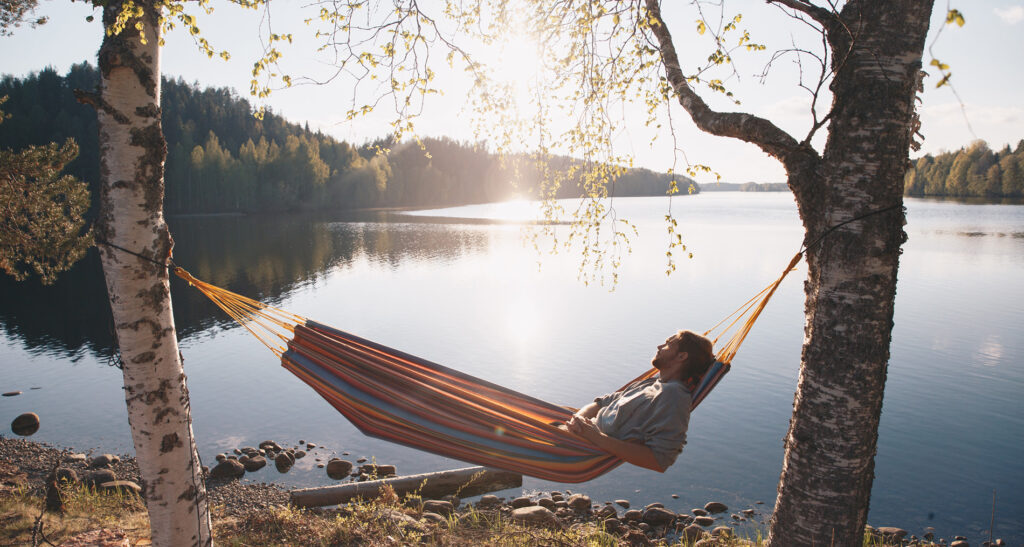Here at Granö Beckasin, we live and work in harmony with nature. For us, it’s a given—something we almost take for granted. Witnessing guests from around the world experience this harmony is what drives us. All year round, we welcome people who are moved—sometimes breathless—by the sounds (or silence) and scents of the forest and the river. That’s why we weren’t shocked when we came across an article earlier this summer; instead, we felt even more convinced that what we do truly matters.
On August 9 this year, The Guardian published an article about a new study showing that people’s connection to nature has declined by more than 60% since the year 1800. This decline is also reflected in the disappearance of nature-related words—like “river,” “moss,” and “blossom”—from literature over the same period.
The study, led by Professor Miles Richardson at the University of Derby and published in the journal Earth, uses data on urbanisation, declining wildlife in neighborhoods, and the decreasing tendency of parents to pass on their connection to nature to their children. This is described as an ongoing “extinction of experience,” with each generation losing more and more contact with the natural world.
So, what’s needed to reverse the trend?
- Expanding green and biodiverse spaces in cities does help—but the study shows we may need to increase them tenfold to truly restore people’s connection with nature.
- Small-scale campaigns like #30DaysWild are beneficial for mental health, but they aren’t enough to reverse long-term trends.
- The most effective strategy is building a strong connection to nature early in life—through forest school-style preschools and a stronger focus on nature in everyday life for children.
- Change must happen within the next 25 years to have a lasting, self-sustaining impact.
- Richardson points out that the solution may not be as daunting as it sounds—because the baseline is now so low. For example, increasing time spent in nature from 4 to 40 minutes per day could already make a big difference.
If you’re a parent or an employer, this is important information. Even though as Scandinavians, we often see ourselves as closely connected to nature—what does it actually look like in your home or workplace?
A few tips from us:
- If you feel even slightly called out by this: choose nature over the city the next time you’re planning a trip with family or colleagues.
- If you need some help getting started: hire a knowledgeable nature guide and learn more.
- Make sure to spend time outdoors every day, and gradually increase how long you stay outside.
- Take responsibility for the next generation—and the one after that—by passing on knowledge and confidence in nature.
- Give yourself the gift of a few days of stillness in the forest, to strengthen your own bond with nature—and gain the energy to pass that on.


